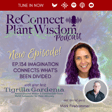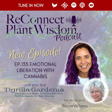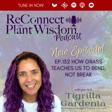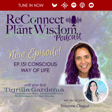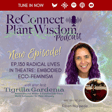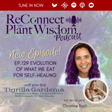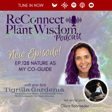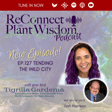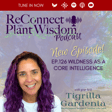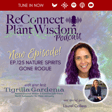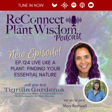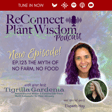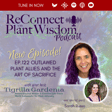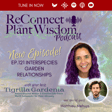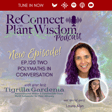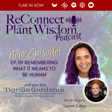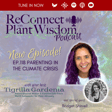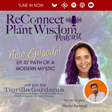
Ep.114 Healing the Original Trauma: Disconnection with Julie Brams
This episode is a deep dive into healing what I call the "original trauma" — our collective disconnection from nature and ourselves. I talk with mental health expert Julie Brams about ecopsychology, forest therapy, and the emerging field she prefers to call Earth-centered psychology. We explore why modern psychology often misses this core disconnection and how reconnecting with the more-than-human world can be profoundly healing.
If you’re ready to heal from disconnection and embrace your nature as nature, this conversation will light your path.
Topics Covered about Earth-Centered Psychology
➡️ The original trauma is our artificial separation from Earth, fueling much of human suffering.
➡️ Ecopsychology and Earth-centered psychology focus on repairing this disconnect through nature-based practices.
➡️ Forest therapy is about nature leading the healing, with guides facilitating connection, not control.
➡️ Rediscovering embodied sensing beyond words helps us reconnect deeply, even amid modern technology.
➡️ Julie’s book The Nature-Embedded Mind invites us to explore a new way of thinking that can heal ourselves and the planet.
Chapters
00:00 Opening – Meeting the original wound
08:04 Nature, Zen, and trauma therapy
16:04 Dismantling the dominance model in therapy
24:18 Listening with full-body perception
32:25 Embracing darkness and shadow work
40:29 Reconnection in a modern world
48:29 The trauma of systemic gaslighting
55:45 The Nature Embedded Mind (book)
01:01:47 Collective healing is possible
Resources Mentioned
🌱 Julie Brams' Work
🌱 The Nature Embedded Mind: How the Way We Think Can Heal Our Planet and Ourselves
US - UK
🌱 Plant Wisdom Book Club
🌱 Personalized mentorship with me and the Plants
Expanded Show Notes
☝🏽ReConnect with Plant Wisdom podcast Ancient and modern knowledge from biology to spirituality about the wondrous ways plants help you lead a Naturally Conscious life.
Subscribe here and on your favorite podcast player.
👉🏽 Join the Naturally Conscious Community to nourish human-plant relationships
// Get to Know Me, Tigrilla //
// Let's Work Together //
// Shop from EcoConscious Partners //
More Partners
Opening and Closing music by @Cyberinga and Poinsettia.
// Let's Connect on Social // Facebook | Instagram | LinkedIn | Youtube

